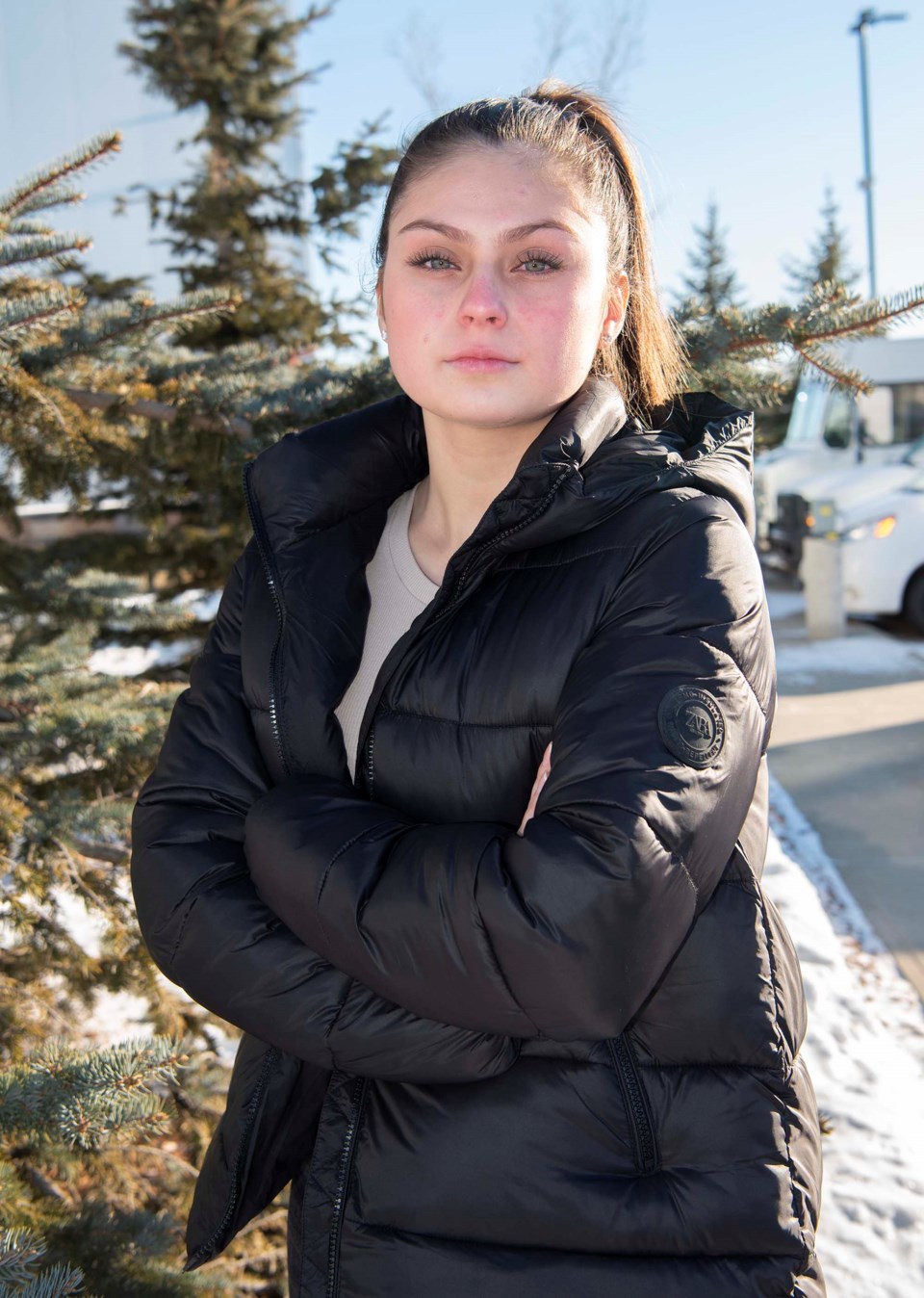She still hasn’t fully recovered from it.
It all started in November 2020 when her mother contracted the disease, prompting everyone in the home to get tested. A few days later, Molina sprayed Febreze in her room and realized she couldn’t smell it.
“That’s when I got really nervous,” she said.
The next day, her diagnosis confirmed she had COVID.
Molina said the disease made her dizzy and lightheaded all the time, so much so that she had to give up soccer.
“I couldn’t stay up a whole day without taking a nap. My muscles hurt a lot, and I had really bad headaches.”
But it wasn’t until two months passed with little change in her condition that she and her St. Albert doctor started to suspect something else was wrong. The doctor ordered a battery of tests, concerned about possible heart conditions spun off from the virus.
“It was a really hard time for me,” Molina said, especially since she was separated from her friends due to online schooling.
“I started getting really depressed.”
Eventually, doctors determined Bella was one of the likely thousands of Albertans suffering from long COVID — a poorly understood condition where a person’s COVID-related symptoms persist for longer than 12 weeks.
Medical mystery
Mark Hall, the associate chair of the Faculty of Rehabilitation Medicine at the University of Alberta, is heading up a study of how best to treat long-COVID patients.
Research suggests that 10 to 30 per cent of people infected with COVID end up with symptoms that linger for more than three months (i.e. long COVID), Hall said. Given the number of COVID cases in Alberta, that suggests up to 90,000 Albertans could have long COVID.
“That is a significant percentage of our population,” he said, and a lot of people worldwide.
Long-COVID symptoms generally include fatigue, breathlessness, anxiety, muscle aches, and difficulty concentrating or sleeping, Hall said. Some sufferers get winded for days after climbing a flight of stairs, while others are so debilitated they can’t leave the house.
Evidence for persistent COVID symptoms is much stronger in adults than it is in youths, said Stephen Freedman, a professor of pediatrics at the University of Calgary who is leading several national studies on COVID in youth. Ongoing research by his team suggests about four per cent of youths who test positive for COVID have persistent COVID symptoms after 90 days — very close to the two per cent of youths who test negative yet also have such symptoms. This suggests just 0.02 per cent of youth COVID cases could lead to what is called long COVID.
Freedman said long COVID might be less common in youths because youths are less likely to have severe COVID infections and the organ damage associated with severe cases — damage that could be the cause of long COVID. It’s also tough to accurately spot long COVID in the first place, as its symptoms can be attributed to so many other disorders.
Further skewing results is evidence that having COVID, or believing you have it, can make you more likely to report lingering COVID symptoms, Freedman continued. A November 2021 study in France found adults who were tested for COVID but didn’t have it were more likely to report persistent symptoms after eight weeks than those who did have the disease.
Unclear treatment
Regardless of how common it is, Freedman said youths with persistent post-COVID symptoms have medical issues that need to be addressed. That starts with working with a family doctor, which could result in referrals to a lengthy list of specialists.
Treatments can include physiotherapy, breathing techniques, and other therapies used to treat chronic fatigue syndrome, Hall said. His team hopes to use artificial intelligence to better tailor treatments to people with long COVID.
Molina said she has worked with heart specialists, a massage therapist, and a psychologist as part of her long-COVID treatment. Her symptoms have improved, but she still gets winded easily, and still isn’t back playing soccer.
“I don’t think people realize the effects COVID can have,” Molina said, noting that her teachers and peers often brush off how it can affect a student’s life.
“I’m still not playing my sport. I’m still struggling.”
Freedman said there’s still a huge amount we don’t know about long COVID in youths. We do know that about one in 200 youths with COVID need hospitalization, with 12 to 15 per cent of those going into intensive care where they have a significant risk of death. We also want our youths to get back to a life where they don’t have to wear masks and can visit their grandparents without taking a COVID test.
“The solution to get there is going to be vaccination,” he said.
Molina encouraged other youths with long COVID to speak up and make others aware of how it affects their lives.
“It’s really not just adults who are having problems in this pandemic,” she said.
Patients whose COVID symptoms last longer than eight weeks should call Alberta Health Service's Rehabilitation Advice Line at 1-833-379-0563. They can also visit together4health.albertahealthservices.ca/longcovid for information on long COVID.



